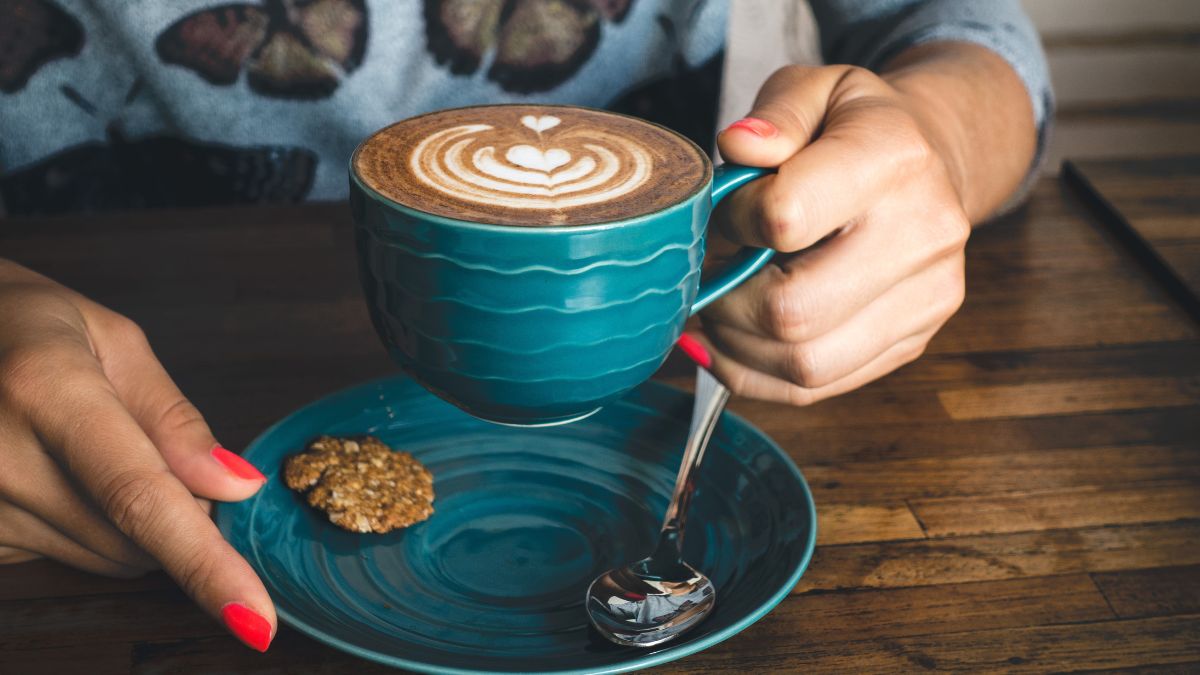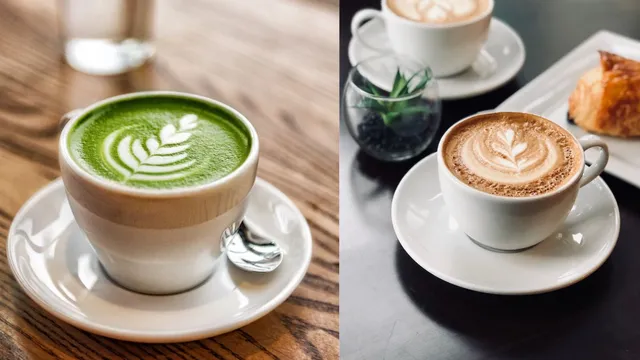- By Bornika Das
- Fri, 06 Jun 2025 06:38 PM (IST)
- Source:JND
Matcha vs Coffee: In today’s fast-paced world, how people start their morning sets the tone for the rest of the day. While some reach out for detox drinks, others may swear by a cup of hot brew for energy. Although coffee has been an age-old morning brew, modern people are now switching to the ancient Japanese tradition of matcha. Matcha, a finely ground green tea powder, has gained popularity in recent times as a healthier alternative. With both the morning beverages promising an essential boost of energy, alertness and focus, the question arises as to which brew is an ideal option to start the day on a better note.
What Is Matcha?
Matcha is a Japanese green tea powder that is made from finely powdered dried tea leaves. It has a slightly bitter, vegetal taste and has a vibrant green colour that results from the leaves’ high chlorophyll levels. It has been the cornerstone of traditional Japanese tea ceremonies for centuries.
What Is Coffee?
Coffee is a beverage brewed from roasted, ground coffee beans. It is dark brown in colour, bitter in taste and slightly acidic. It contains caffeine and chlorogenic acid. Coffee is typically served hot and has the highest sales in the world market for hot drinks.
Matcha vs Coffee: Key Differences To Look For
Energy Profile
Coffee is known for its high caffeine content, having around 95mg per cup. This blocks adenosine receptors in the brain, staving off drowsiness and increasing alertness. On the other hand, matcha offers a more nuanced energy boost. Although it contains less caffeine, around 35-70mg per cup, the presence of L-theanine, an amino acid, promotes relaxation without drowsiness.
Health Profile
Matcha is powdered green tea leaves and its consumption means having the entire leaf rather than an infusion. This provides a high amount of antioxidants, particularly catechins like EGCG (epigallocatechin gallate), which have been associated with preventing cancer, promoting heart health and anti-ageing benefits. Coffee also contains antioxidants like chlorogenic acid that have been linked to reducing the risk of Parkinson's disease, type 2 diabetes, and certain cancers. Moderate consumption of coffee may also support longevity.
ALSO READ: Why Matcha Is Taking Over As The Latest Sipping Trend? Here's Why Everyone's Hooked
Digestive Impact
Coffee’s acidity, having a pH of around 5, can trigger heartburn or stomach discomfort in sensitive individuals. Moreover, the stimulating effect of coffee on the digestive system also helps smooth bowel movements. Matcha tends to be gentler on the stomach with a less acidic profile. Its preparation with warm water rather than milk means that it lacks coffee’s potential buffering effect and drinking matcha on an empty stomach can occasionally cause nausea in some people.

Coffee Has More Caffeine Than Matcha (Image Credits: Canva)
Preparation And Ritual
Coffee is a remarkably versatile beverage and its ritual can be both simple and complex, as per the preference. In contrast, matcha preparation follows a more prescribed ceremony. The powder is sifted, whisked with water and traditionally prepared with mindfulness. The deliberate process can itself become a calming morning experience, but can sometimes be less convenient, especially during rush hours.
Flavour Experience
Coffee offers a robust flavour, sometimes bitter, having endless variations based on bean origin, roast profile, and brewing method. Its flavour complexity attracts connoisseurs who appreciate its nuanced tasting notes. Matcha offers a distinctive vegetal taste often described as grassy or umami-rich with a slight sweetness. Premium matcha has a smooth finish, while lower-grade ones taste slightly bitter.
ALSO READ: What Is Date Seed Coffee Trend? Everything You Need To Know About The Viral Wellness Drink
Matcha vs Coffee: Which One Is Better For Morning?
The choice between coffee and matcha depends on personal preference. If you want a powerful energy rush in the morning, enjoy a rich sensory experience or require maximum convenience, opt for coffee. Its higher caffeine content makes it suitable for those who need a significant alertness boost. However, if you prefer sustained energy without crashes, want a higher antioxidant intake and value mindful preparation ritual, matcha is the go-to drink for you. Its balanced stimulation makes it ideal for those who are sensitive to caffeine's more intense effects.

